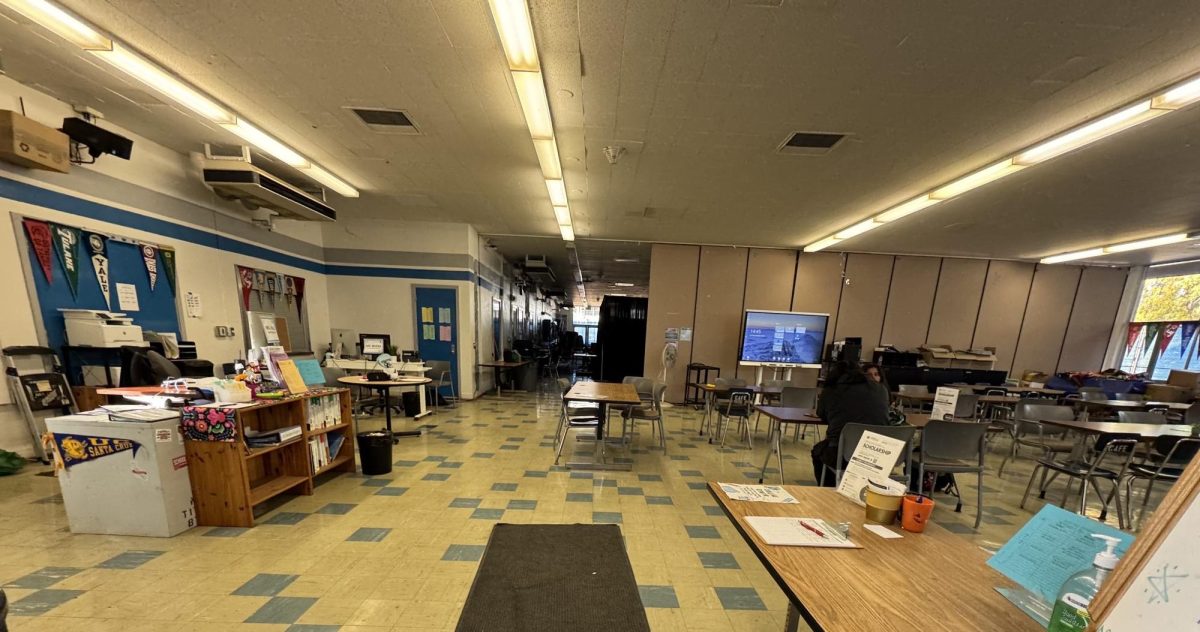With college application deadlines nearing, many seniors have started working, finalizing, or submitting their college essays. Colleges and universities have been becoming increasingly competitive; it’s not enough to have perfect grades, standardized test scores, or even extracurricular and volunteer activities; admissions officers are also asking students to write personal statements and answer prompts about themselves. The pressure on students is on, and crafting the “perfect” college has become a battle for the worthiest applicant.
When it comes to writing these essays, such as the Common App essay, supplemental essays, UC Personal Insight Questions, dubbed PIQs, it seems as if it’s the last chance for students to showcase themselves in the best light possible, providing insight that would’ve made up for the weaker portions of their application. Many seniors have resorted to writing their essays about personal experiences, usually leaning towards a traumatic experience, to show their resilience, and why they’re a more deserving candidate because they’ve managed to persevere through.
A college essay gives students the opportunity to frame themselves in a way that shows them undergoing an experience through a transformative narrative. It’s about being able to push through, ultimately shaping them to be the person they are during their pivotal adolescence years, trying to balance school, extracurriculars, and family– all the while trying to figure out who they are, and what they want to do beyond graduation.
There’s some debate regarding whether or not sharing a personal experience or story, typically one characterized by trauma, is the right course of action when answering an admission prompt. The term “trauma-dump,” coined by psychologists, is used to describe the one-sided action of excessively unloading traumatic experiences onto others. While some feel that college essays have become a competition for who can exploit their trauma the most to garner sympathy from admissions officers, some feel that it is vital to the story that’ll tie the loose ends in their application; it’s an essay of growth, perseverance, and resilience that helped them get to where they are.

“Whether you define it as showing resilience or ‘trauma-dumping,’ my experiences from living out the worst 13 years of my life felt important for me to write about,” says Yosseph Osher, a senior, “rather than to pull an excuse, my aim in expressing my story was to push myself to the next step of overcoming.” He continues to state, “At the end of the day, I’m following the prompt, giving a critical part of my life’s story and showing the good and the bad.” With this insight, some students believe that discussing a personal experience may help provide context for colleges because it’s a reflection of themselves that they didn’t have the opportunity to highlight before.
However, some students have opted for a different approach; not necessarily being compelled to write about a traumatic experience. Emily Galvan, a senior, states, “I still decided to go for an essay about self-discovery. I don’t think it’s fair or ethical to use trauma as an advantage in getting in, while I do believe resilience is an amazing trait to have…” showing another perspective students take. People’s experiences are personal to themselves, and some people may not feel comfortable sharing a traumatic experience, or don’t want to be defined by it. There’s also the idea some seniors hold that their “trauma” is too trivial to share, perhaps hindering their application.
“I didn’t feel the need to share my trauma or anything of that nature because I didn’t want it to define me,” says Denis Protsenko, a senior who has already turned in their application for both the CSU’s and UC’s. “I feel like I could stand on my own without having to do that by talking about my art and explaining why I’m a good candidate.”
It’s not just admissions officers reading these essays; often, teachers are also asked for feedback. Ms. Bunis, a U.S. history teacher, says, “students shouldn’t feel pressured to write about a traumatic experience.” She recommends, “if you’re going to write about a traumatic experience, write about something that you feel comfortable sharing because you are putting it out into the world to be read and you really are putting yourself out there and being vulnerable.”
Ms. Sanchez, an ETS (Educational Talent Search) counselor reads many college essays that vary students from different backgrounds and experiences. She states, “College admissions has definitely gotten increasingly competitive, and especially at North Hollywood where people are already taking AP and doing extracurriculars, so there is definitely pressure to trauma-dump, but you should add experiences of what you learned in the essay.”
College applications are incredibly stressful for many seniors, especially with nearing deadlines. There’s pressure to frame yourself in a certain way and write in a specific style that makes you stand out, which may not be particularly easy for students that aren’t strong writers. While applying to college has been increasingly competitive, especially with the decline in acceptance rates, writing about a personal experience, usually trauma, is the route many students take to present themselves, or their achievements in spite of an event. However, it isn’t the only resort to highlight yourself as a unique candidate.



















